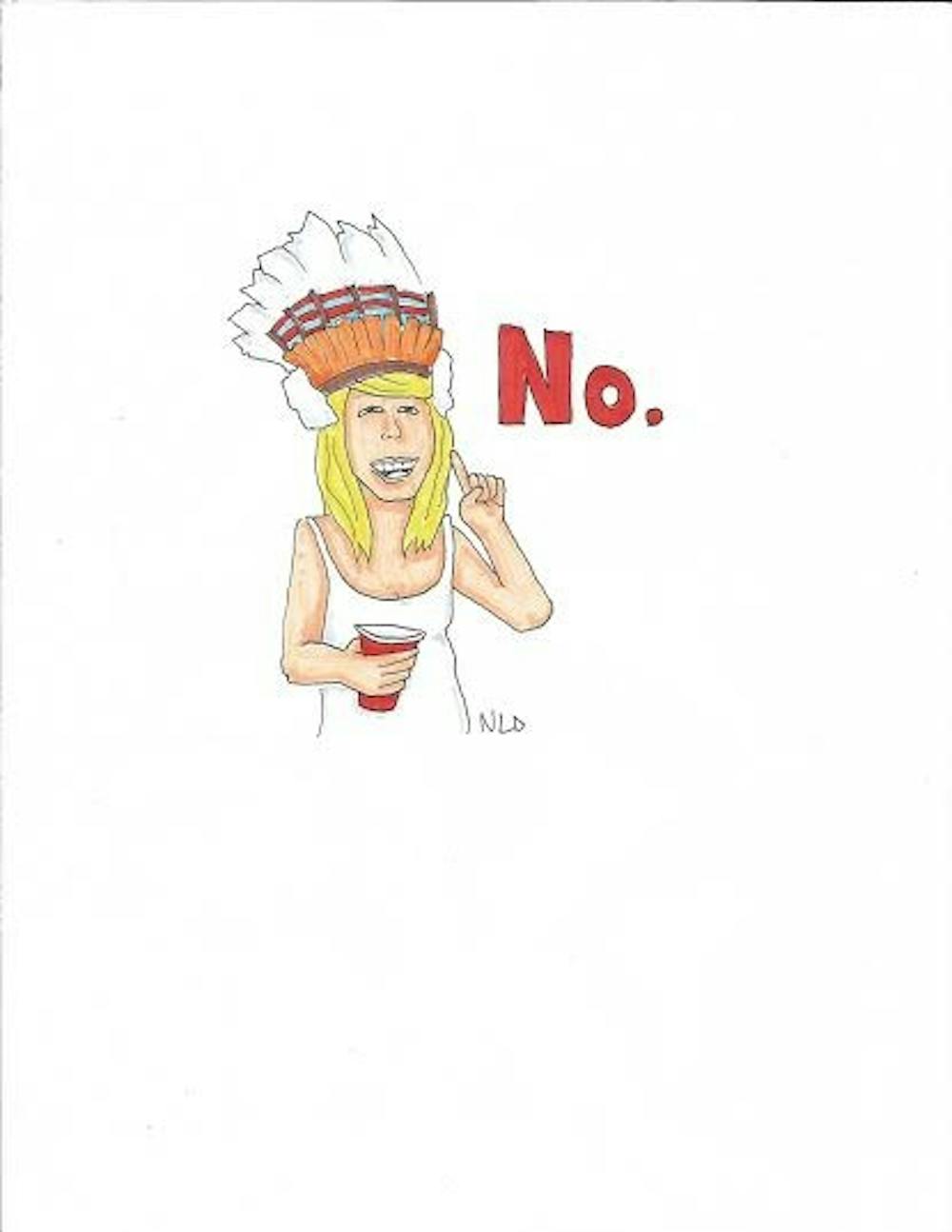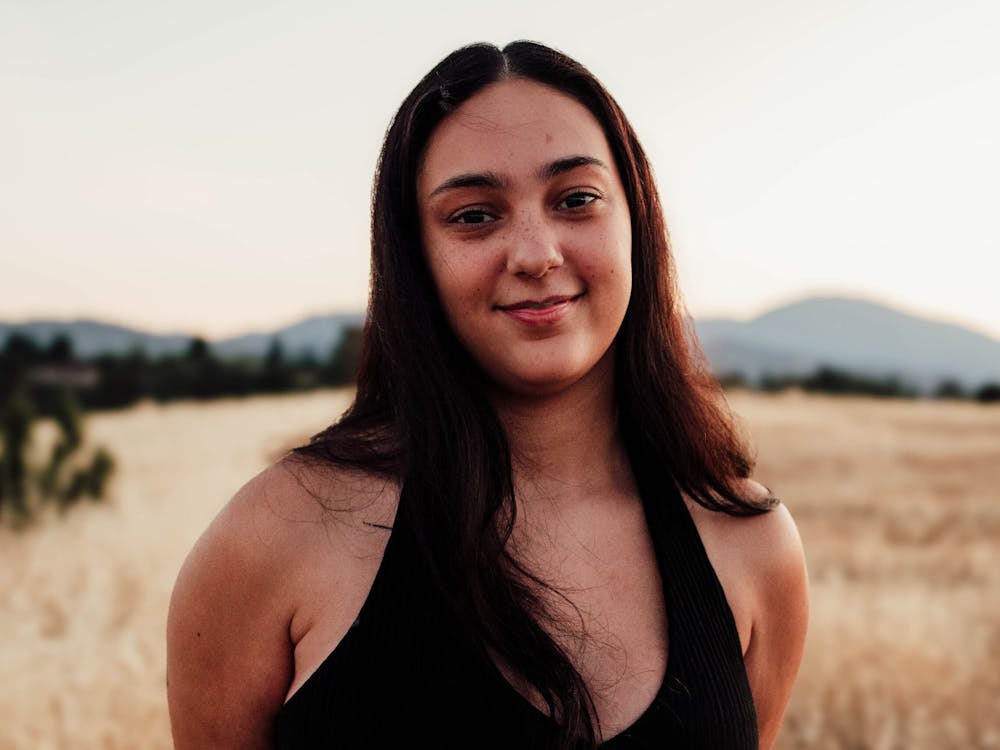All the signs are there. Leaves strewn on lawns. People bundled up in sweaters and scarves. Plastic spiders strung across doorways. Pumpkins smile from every porch, patio, stoop and window. It’s that time of year. Halloween is almost here.
And as you prepare for the weekend of Halloween festivities, you’re either gathering the finishing accessories for your clever costume or you’re scrambling to make something out of the contents of your closet. And while there are some costume staples that might be easy to pull off, this year, The Beacon wants you to be thoughtful with your costume selection.
Every year, the topic of cultural appropriation comes up around people’s costume choices. For some, you might not know what “cultural appropriation” even is. For some, you might dread this topic because you feel like people are always blaming you for society’s problems. And for some, you might be tired of having to explain to people what the problem is and why it matters.
And that’s why we’re here: to explain what the problem is, how to address it, and how to avoid it in the future.
The problem
For many, the conversation about cultural appropriation quickly turns to a flurry of finger-pointing and name-calling. And while calling someone’s costume choice “racist” might seem like a fair critique, it’s not the most productive method of communicating the bigger point — which is this:
Cultural appropriation, at its most basic level, is the use of privilege to help one group gain something (“cute” clothes, a funny joke) at the expense of another group.
But even the word “privilege” is hard to understand.
The best analogy we’ve heard: Imagine two students are travelling down Willamette Boulevard, one in a car and one on a bike. Because the road was made with only cars in mind, what seems like a little crack in the road for a car, might actually cause a cyclist to fall off their bike. It takes a lot longer to get somewhere on a bike than in a car. And if the two collided, the student on the bike would be far more hurt by the impact. Therefore, it’s the responsibility of the student in the car to be more aware of the road, how they are driving and how their driving might affect the people on bicycles.
In our society, some groups of people have advantages over others — some people have “cars,” some have “bikes.” You didn’t ask to have a “car” or a “bike.” That’s just what happened. You didn’t make society the way it is. You didn’t build the “road.” You didn’t create inequality or racism or sexism, it already existed long before you were born.
So it’s not our fault that inequality exists, but it is our fault if we choose not to acknowledge the role we play in perpetuating the inequality. And that’s why we need to be aware of our privilege, and correct our behavior if someone tries to remind us when we forget.
The reality is: We all will offend someone at some point in our lives. That doesn’t make some people too sensitive or others too insensitive, ignorant or racist. It just means we’re all imperfect, and that’s fine. We just urge you to be kind and thoughtful. If someone says your costume makes them feel offended or uncomfortable, respond as respectfully as possible and do your best to be open. If you express discomfort about someone’s costume, express your critique constructively and compassionately — people don’t usually go out of their way to be offensive. Help them learn.
We can all help each other be more thoughtful human beings.
One easy way we can acknowledge our privilege and not be culturally insensitive is to choose a Halloween costume that does not appropriate/mock someone else’s culture.
How to avoid cultural appropriation this Halloween
Ask yourself the following questions:
- Is your costume racially, ethnically, or culturally based? (i.e., Arab, “geisha girl,” Mexican serape and hat, Native American headdress, etc.)
- Would you wear that costume around someone from that group/culture?
- Why is your costume funny? (Is it funny because you’re making fun of another identity?)
Our Halloween costume ideas:
One person:
Your celebrity look-alike
A character from your favorite Netflix series, movie or book
Your best friend
Any animal (i.e., sloth, gorilla, turtle, or rhinoceros)
Two people:
Tom Hanks from “Castaway” and Wilson
Ketchup and mustard
Thirteen people:
The last supper








